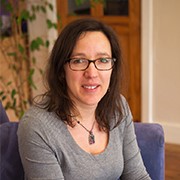Sir David Attenborough has had a fossil named after him; it’s a 430 million-year old crustacean named cascolus ravitis (there is a link if you know your Latin) but, in fact, it’s only one of many species which bear his name. The first was the Attenborosaurus conybeari, a large plesiosaur, which adorns the walls of the great hall at the Natural History Museum in London. And it was standing there, about a month ago, that I was privileged to hear from the man himself.
Sir David was lively, funny and engaging, telling stories and answering questions. He had begun his career at the BBC in the early 1950s, on a programme featuring animals from London Zoo, he recounted, and had almost lost his job when he invited in the local rat catcher, a great story-teller, resulting in unexpected antics involving live rats. His favourite animal is a sloth, he is scared of the King Cobra and (unsurprisingly) his ideal partner to share a cup of tea would be Charles Darwin.
But the person for whom he had the most admiration, as we stood amongst so many species old and new, was Mary Anning, a woman ahead of her time. She was born a decade before Darwin and lived in poverty all of her life, but she made incredibly significant discoveries of fossils on the beaches of Lyme Regis, most of which she sold to make a living. She died of cancer aged 40, but the many specimens she had so carefully excavated remain for us to study today. It was not until 2010 that her contribution was recognised by her inclusion in the ten British women who have most influenced the history of science. Tracy Chevalier was inspired to write about Mary in the wonderful Remarkable Creatures. But Mary did have some contemporaneous recognition; the tongue twister “she sells sea shells along the sea shore” was reputedly written about her in 1908. I wonder if she knew and, if so, whether she considered this flattering. Whilst certainly not on a par with the honours bestowed on Sir David, it has been enduring, being recited in playgrounds across the country for the last 200 years.
